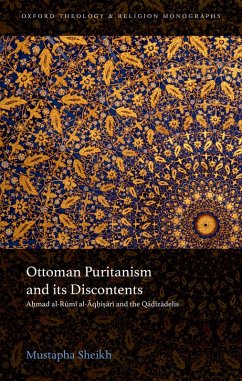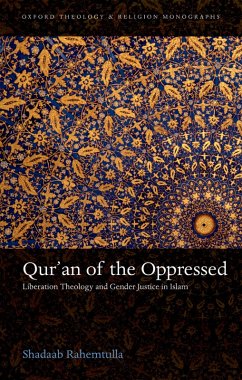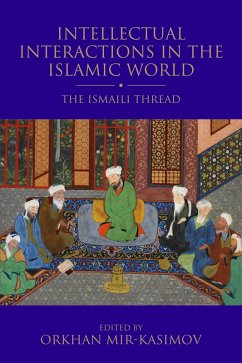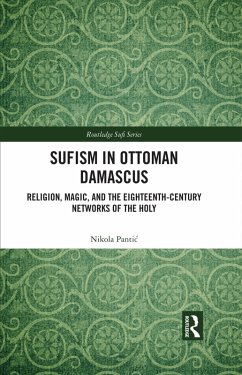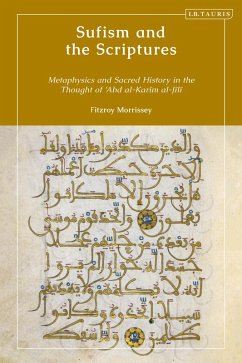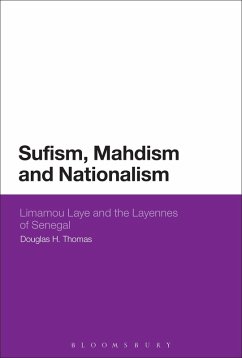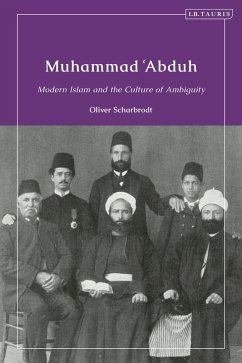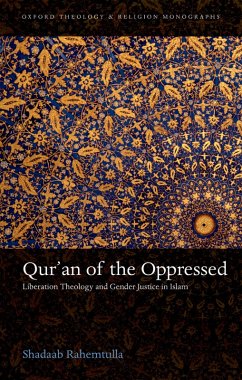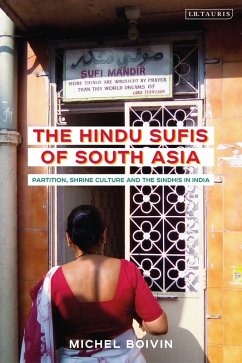
Ottoman Puritanism and its Discontents (eBook, ePUB)
Ahmad al-Rumi al-Aqhisari and the Qadizadelis
Versandkostenfrei!
Sofort per Download lieferbar
42,95 €
inkl. MwSt.
Weitere Ausgaben:

PAYBACK Punkte
21 °P sammeln!
This book is about the emergence of a new activist Sufism in the Muslim world from the sixteenth century onwards, which emphasized personal responsibility for putting Godâs guidance into practice. It focuses specifically on developments at the centre of the Ottoman Empire, but also considers both how they might have been influenced by the wider connections and engagements of learned and holy men and how their influence might have been spread from the Ottoman Empire to South Asia in particular. The immediate focus is on the Qadizadeli movement which flourished in Istanbul from the 1620s to the...
This book is about the emergence of a new activist Sufism in the Muslim world from the sixteenth century onwards, which emphasized personal responsibility for putting Godâs guidance into practice. It focuses specifically on developments at the centre of the Ottoman Empire, but also considers both how they might have been influenced by the wider connections and engagements of learned and holy men and how their influence might have been spread from the Ottoman Empire to South Asia in particular. The immediate focus is on the Qadizadeli movement which flourished in Istanbul from the 1620s to the 1680s and which inveighed against corrupt scholars and heterodox Sufis. The book aims by studying the relationship between Ahmad al-Rumi al-Aqhisariâs magisterial Majalis al-abrar and Qadizadeli beliefs to place both author and the movement in an Ottoman, Hanafi, and Sufi milieu. In so doing, it breaks new ground, both in bringing to light al-Aqhisariâs writings, and methodologically, in Ottoman studies at least, in employing line-by-line textual comparisons to ascertain the borrowings and influences linking al-Aqhisari to medieval Islamic thinkers such as Ahmad b. Taymiyya and Ibn Qayyim al-Jawziyya, as well as to several near-contemporaries. Most significantly, the book finally puts to rest the strict dichotomy between Qadizadeli reformism and Sufism, a dichotomy that with too few exceptions continues to be the mainstay of the existing literature.
Dieser Download kann aus rechtlichen Gründen nur mit Rechnungsadresse in A, B, BG, CY, CZ, D, DK, EW, E, FIN, F, GR, HR, H, IRL, I, LT, L, LR, M, NL, PL, P, R, S, SLO, SK ausgeliefert werden.




